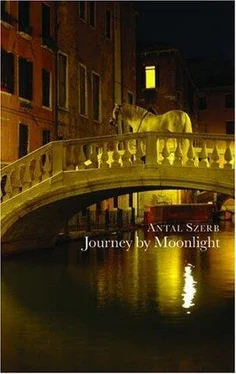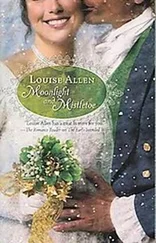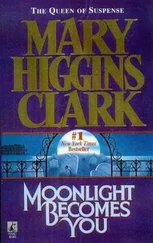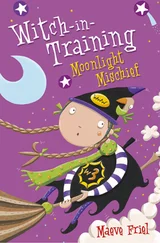Father Severinus vanished. In the dead man of Foligno only Ervin had died, the remarkable boy and dear friend and the finest memory of their youth.
“I knew he was very ill,” said Mihály. “I tried to persuade him to get himself seen to. Do you think I should perhaps have tried a bit harder? Perhaps I should have stayed in Gubbio and not left until something was done about getting him well?”
“I think our concern, our tenderness, our anxiety would never have got through to him — to Father Severinus. For him the illness wasn’t as it would be for other people — not a misfortune but rather a gift. What do we know about that? And how easy it would have been for him to die.”
“He was so used to the ways of death. In the last few years I think he dealt with nothing else.”
“All the same, it might well have been horrible for him to die. There are very few people who die their own, proper death, like … like Tamás.”
The warm orange glow from the lampshade fell on Éva’s face and it became much more like the face she had shown in those years in the Ulpius house when … when they played their games and Tamás and Mihály died for her, or at her hands. What kind of fantasy, or memory, might now be stirring in her? He clutched his hand to his aching, pounding heart, and a thousand things flitted through his head: memories of the sick pleasure of the old games, the Etruscan statues in the Villa Giulia, Waldheims’s explanations, the Other Wish and the death-hetaira.
“Éva, you killed Tamás,” he said.
Éva gave a start, her facial expression changed totally, and she clapped her hand to her forehead.
“It’s not true! Not true! How could you think it?”
“Éva, you killed Tamás.”
“No, Mihály, I swear I didn’t. It wasn’t me that killed him … you can’t see it like that. Tamás committed suicide. I told Ervin, and Ervin gave me absolution, as a priest.”
“Then tell me too.”
“Yes, I’ll tell you. Listen. I’ll tell you how Tamás died.”
Éva’s hand in Mihály’s was cold as ice. He too felt shivers of horror running through him, and his heart grew unspeakably heavy. Relentlessly they descended into the mines, the passageways, the pits, through brackish underground lakes until they reached the cave where, amid the blackness at the very centre of things, lurked the secret, and the spectre.
“You remember, don’t you, how it was. That suitor of mine, and how violent my father was, and how I asked him if I could travel with Tamás for a few days before I got married.”
“I remember.”
“We went to Hallstatt. The place was Tamás’s idea. The moment I arrived there I understood. I really can’t describe it … an ancient, black town, beside a dead, black lake. You see these hill towns in Italy too, but this was much darker, much more chilling, the sort of place where all you can do is die. Tamás had already told me on the way there that he was going to die soon. You remember, don’t you, the office … and how he couldn’t bear being torn away from me … and in particular, you remember, how he always longed for death, and you know, too, how he didn’t want to die in some random way, but prepared for, carefully …
“I know that anyone else would have reasoned with him, or sent off telegrams right and left, called for help from his friends and the police and the emergency services and whatever else one does. That was my first feeling too, that I ought to do something, I ought to call for help. I didn’t, and I watched his preparations with despair. But then suddenly it dawned on me that Tamás was right. How I knew this I can’t say … but you remember how close we always were, how I always knew what was going on inside him — and now I knew that he was beyond help. If it didn’t happen now, then some other time, soon; and if I wasn’t there then he would die alone, and that would be terrible, for both of us.
“Tamás realised I had become resigned to the idea and he told me the day when it would happen. That day we went boating on the dead lake, but in the afternoon the rain came down and we went into our room. There was never such an autumn since the world began, Mihály.
“Tamás wrote a farewell note, in meaningless phrases, giving no reasons. Then he asked me to prepare the poison, and to give it to him …
“Why did I have to do it? … and why did I do it? … you see, this is something perhaps only you can understand, Mihály. You played and acted with us, in those years.
“I’ve never felt any pangs of remorse. Tamás wanted to die, and there was no way I could have prevented it. And I didn’t even want to, because I knew it was better for him this way. I carried out his last wishes. I did the right thing. I’ve never regretted it. Perhaps if I hadn’t been there, if I hadn’t given him the poison, he wouldn’t have had the strength of mind, he would have struggled with himself for hours and then taken it after all, and gone to his death ashamed of his lack of courage, shamefaced. But this way he killed himself bravely, without hesitation, because it was play-acting, he played at being killed by me, he was performing a scene we had rehearsed so many times at home.
“Afterwards he lay down calmly and I sat on the edge of the bed. When the drowsiness of death drew near, I pulled him to me and kissed him. And I carried on kissing him until his arm fell away from me. Those weren’t the kisses of a brother and sister, Mihály, it’s true. We were no longer brother and sister but someone who would live on and someone who was dying … then at last he was free, as I believe.”
For a long time they sat in silence.
“Éva, why did you send me that message not to look for you?” Mihály finally asked. “Why don’t you want to see me?”
“Oh, but don’t you see, Mihály, don’t you see, it’s impossible? … When we’re together it’s not just the two of us … At any moment Tamás might appear. And now Ervin too … I can’t be with you, Mihály, I can’t.”
She rose.
“Just sit down for one more minute,” he said, as softly as a man speaking in extreme anger. “Is it true you’re going to India?” he asked. “For a very long time?”
Éva nodded.
He wrung his hands.
“You really are going, and I shan’t see you any more?”
“That’s true. What will become of you?”
“There’s only one thing for me: to die my own, proper death. Like … like Tamás.”
They were silent.
“Do you seriously think so?” Éva asked eventually.
“Absolutely seriously. There’s no point in my staying in Rome. And there’s even less point in my going home. There’s no point in my doing anything.”
“Could I possibly be of help?” she asked, without enthusiasm.
“No. Or rather, there is a way, after all. Could you do something for me, Éva?”
“Well?”
“I’m afraid to ask, it’s so difficult.”
“Ask away.”
“Éva … be at my side, when I die … like you were with Tamás, Éva.”
Éva considered.
“Would you do it? Would you do it? Éva, this is all I ask of you, and after it, nothing ever again, till the end of the world.”
“All right.”
“Do you promise?”
“I promise.”
ERZSI ARRIVED BACK in Paris. She telephoned János, who came for her in the evening to take her out to dinner. But she found him rather distracted, and not especially pleased to see her. This suspicion grew stronger when he announced:
“Tonight we’re dining with the Persian.”
“Why? On our first night!”
“True, but I can’t do anything about it. He insisted on it, and you know how I have to butter him up.”
During the dinner János was mostly silent, and the conversation flowed between Erzsi and the Persian.
Читать дальше












